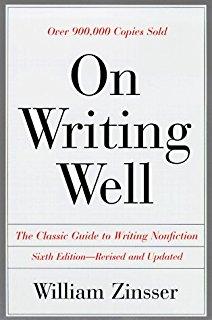Author: Kathryn Reynolds
With the start of a new fall semester comes that busy time of year… scholarship season! A key component of any successful scholarship application is to prepare a compelling research proposal. The following tips will help you fine-tune your proposal-writing skills in preparation for CIHR and NSERC application deadlines.

1) Start early! Be aware of your deadlines and plan accordingly. Check the MiNDS program deadlines (Sandra sends these out well in advance) to ensure you’re giving yourself ample time to produce a quality proposal draft for faculty review. Complete administrative tasks as soon as possible – update your Canadian Common CV (https://ccv-cvc.ca/), order your transcripts, and aim to contact your references at least one month in advance. It can be helpful to refresh your references’memories by providing your CV and a brief list of recent and/or noteworthy activities.

2) Draw inspiration from others. If possible, read several research proposals (the more successful the better) before starting your own. Identify the strengths of these proposals, as well as areas for improvement. Keep these insights in mind as you begin writing.

a. What is your overarching research question or goal?
b. Why is this an important question to ask? How will it advance the field of neuroscience? What makes it particularly relevant at this moment in time?
c. What background information is essential for the reader to understand your proposal? Identify important gaps to help the reader come to the conclusion that your work needs to be done.
d. What are your research objectives? What evidence supports these objectives?
e. How will you accomplish these objectives?

4) Be concise. It’s easy to fall into the trap of explaining your research in excessive detail. Remember that your reviewers will not necessarily be experts in your specific field. Their goal is to assess your ability to clearly and logically communicate an idea, so convey your research plans succinctly without jargon.

5) Write with clarity and persuasion. Once you’ve nailed down your content, fine-tune your writing style to sell your proposal. Capture the reader’s attention with a compelling first paragraph that highlights the uniqueness/scope/potential impact of your research. You may wish to consult a writing guide to help you create an organized, logical, and persuasive flow of ideas throughout the body of your proposal. A good place to start is William Zinsser’s guide “On Writing Well”.

6) Revise. Then take a breather… get feedback, and then revise again. Be ruthless in your revisions. Once you’re satisfied, put down your proposal for a few days, and then conduct a final edit to catch minor mistakes.